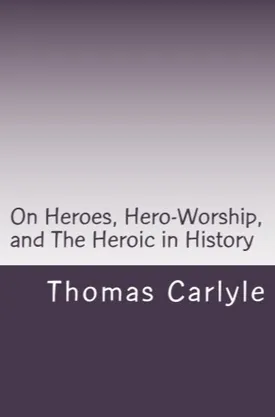Thomas Carlyle
Thomas Carlyle was one of the most well-known authors of the Victorian era, responsible for the development of the essay form and various experiments in historiography. Born in Scotland in 1795, Carlyle grew up in an atmosphere of staunchly Presbyterianism and conservative views on literature and education. He attended Edinburgh University where he studied mathematics and moral philosophy before moving to London to pursue authorship. Although Carlyle initially studied literature, history quickly became his focus. He wrote works of moral theory, social analysis, spiritual studies, and autobiography, including 'The Life of Schiller', 'On Heroes and Hero Worship', 'Life of John Sterling', and the novel 'Sartor Resartus'.
Carlyle was an advocate of the concept of the 'Great Man' theory of history, believing that history was largely determined by ideas of the 'heroes' of the past who had great influence over their time. He wrote extensively about the contributions of various historical figures, focusing on their achievements and values without disregarding their faults or failures. This approach to history influenced his writings of essays, stories, and novels.
Carlyle's greatest contribution to literature was undoubtedly his experimentation with the essay form. Through his essays, he addressed deep philosophical questions and explored complex themes, while at the same time providing entertaining and informative reading. His essays were hugely popular during his lifetime, making him one of the most celebrated writers of the 19th century.
In his later years, Carlyle became increasingly critical of the contemporary state of society, politics, and the Church. His works, such as 'Past and Present' and 'Chartism', exposed the rampant problems in society, such as poverty, political corruption, and exploitation of the poor. By popularizing his writings, he sought to raise awareness of these issues and offer solutions to them.
In addition to his essays and stories, Carlyle wrote several histories of the Development of Europe from the Reformation to the close of the 19th century. He was a prolific letter writer and diarist, preserving some of the most important archives of his time.
Carlyle died in 1881, leaving behind a legacy that is still felt today. He had a far-reaching influence on literature, the essay genre, and philosophical thought. His works continue to be admired and read by generations of readers. Thomas Carlyle was an important figure in Victorian literature, and his literary mark is still carved into history.

